14 September
1514 – Second proxy marriage of King Louis XII of France and Mary Tudor, sister of Henry VIII.
1523 – Death of Pope Adrian VI in Rome. He was buried in Rome's Santa Maria dell'Anima church. Adrian had only been Pope since January 1522.
1538 – The Destruction of the Shrine of Our Lady of Caversham, near Reading, by Dr John London, on the orders of Henry VIII. The shrine had been established in 1106.
1540 - Death of Sir William Kingston, Constable of the Tower of London, Knight of the Garter and comptroller of the King's household, at Painswick in Gloucestershire. He was buried at Painswick.
1585 – Sir Francis Drake set sail from England on a mission to raid Spanish ports. He had been given royal approval for these raids, and raids in the West Indies at the end of 1584.
15 September
1500 – Death of John Morton, Archbishop of Canterbury and Chancellor to Henry VII, at Knole from the plague.
1514 – Thomas Wolsey was appointed Archbishop of York after having been elected in the August. He had already been appointed Bishop of Lincoln in February of that year, and in 1515 he would be elevated to the office of Cardinal.
1556 – Charles V departed from Vlissingen in Zeeland bound for Spain following his voluntary abdication of his titles in October 1555. He spent his retirement in the monastery of Yuste in Extremadura.
1564 – The final day of Mary, Queen of Scots' fourth progress. The progress had begun on 22nd July 1564, and had included stops at Edinburgh, Linlithgow Palace, Stirling Castle, Kincardine Castle, Perth, Blair Atholl, Glen Tilt, Inverness, Beauly Priory, Redcastle, Dingwall, Gartly Castle, Aberdeen, Dunnotar Castle, Dundee and St Andrews.
1589 - The Battle of Arques (part of the French Wars of Religion) began between the troops of Henry IV of France and those of the Catholic League led by Charles of Lorraine, Duke of Mayenne. After days of bloody fighting, Henry IV was victorious.
16 September
1519 – Death of John Colet, scholar, humanist, theologian, Dean of St Paul's and founder of St Paul's School, after suffering three attacks of sweating sickness between 1517 and 1519. He was buried in St Paul's Cathedral. Humanists such as Erasmus were influenced by Colet's work.1539 – Birth of Walter Devereux, 1st Earl of Essex, nobleman, soldier and adventurer, at Chartley in Staffordshire. Devereux was the eldest son of Sir Richard Devereux and Dorothy Hastings, and was the father of Robert Devereux, 2nd Earl of Essex and a favourite of Elizabeth I.
1541 - King Henry VIII entered the city of York through Walmgate Bar, and was met by the city’s officials at Fulford Cross. The mayor and the aldermen of the city then begged forgiveness from the King for the North’s rebellion during the Pilgrimage of Grace, and gave the King and his wife, Queen Catherine Howard, a gold cup each full of gold coins.
1574 – Death of Sir Robert Catlin, judge and Lord Chief Justice of the Queen's Bench, at Newnham, near Bedford. He was buried at Sutton in Bedfordshire. Catlin was Chief Justice during the Ridolfi Plot and attended the trial of Thomas Howard, 4th Duke of Norfolk, in 1571.
17 September
1558 – Death of Walter Devereux, 1st Viscount Hereford, at the Devereux seat at Chartley in Staffordshire. He was buried in Stowe church. Devereux served Henry VIII as joint Constable of Warwick Castle, as a member of the jury at the trial of Edward Stafford, Duke of Buckingham, in 1521, in the government of the Welsh Marches, as Steward in Princess Mary's household at Ludlow and Chamberlain of the Court of General Surveyors. He also served Edward VI as a Privy Councillor.1563 – Death of Henry Manners, 2nd Earl of Rutland, courtier and soldier, during an outbreak of the plague. He was buried at Bottesford parish church in Leicestershire. Manners served Edward VI as Warden of the East and Middle Marches on the Scottish borders, joint Lord Lieutenant of Lincolnshire and Nottinghamshire, and Lord Lieutenant of Nottinghamshire. He was imprisoned when Mary I came to the throne for his support of John Dudley, Duke of Northumberland, but was released into house arrest and then pardoned. He served Mary I as Captain-General of Horsemen and Lieutenant and Captain-General in Calais. During Elizabeth I's reign, he served as Lord Lieutenant of Nottinghamshire and Rutland, and President of the Council of the North.
1575 – Death of Heinrich (Henry) Bullinger, the Swiss reformer and theologian, in Zurich. Bullinger succeeded Huldrych Zwingli as pastor at Grossmünster and head of the church in Zurich. His main work was “The Decades”, a theological work, but his sermons were also translated and published, and he wrote historical works.
1577 - The Edict of Poitiers ratified the Treaty of Bergerac, which had been signed between Henry III of France and the Huguenot princes.
18 September
1501 – Birth of Henry Stafford, 10th Baron Stafford, at Penshurst in Kent. He was the son of Edward Stafford, 3rd Duke of Buckingham, and his wife Eleanor (née Percy), daughter of Henry Percy, 4th Earl of Northumberland. Henry married Ursula Pole, daughter of Sir Richard Pole and Margaret Pole, Countess of Salisbury, in 1519, and the couple had around fourteen children. Stafford served Mary I as a Chamberlain of the Exchequer and Elizabeth I as a Lord Lieutenant of Staffordshire.1535 – Birth of Henry Brandon, son of Charles Brandon, Duke of Suffolk, and his wife Katherine (née Willoughby). Henry Brandon died on 14th July 1551, at the age of fifteen, from sweating sickness. His younger brother, Charles, survived him by just half an hour.
1544 – Henry VIII rode triumphantly through the streets of Boulogne after the French surrendered, ending the Siege of Boulogne.
1556 – Death of Edward Courtenay, 1st Earl of Devon, from a fever at Padua in Italy. He was buried there in the church of Sant'Antonio. Courtenay had been sent overseas after he was implicated in Wyatt's Rebellion as a future husband and consort of Mary I's half-sister, Elizabeth.
1559 – The fifteen year-old Francis II was crowned King of France at Rheims by the Cardinal of Lorraine, following the death of his father Henry II in July 1559 after a jousting accident. Mary, Queen of Scots was Francis' consort.
19 September
1551 – Birth of Henry III of France. He was born at the Château de Fontainebleau, and was the fourth son of King Henry II and Catherine de' Medici. He was King of France from 1574 to 1589, succeeding his brother, Charles IX.
1555 – Burnings of Protestant martyrs, Robert Glover and Cornelius Bungey, at Coventry. John Foxe gives the date of their burnings as “about the 20th day” in his “Actes and Monuments” (1563), but Rev. Thomas Brice gives the date as the 19th in his “A Compendious Regester” of 1559. Foxe actually used Brice's “Regester” as a source.
1560 – Baptism of Thomas Cavendish, explorer, navigator and privateer, at St Martin's Church, Trimley St Martin, Suffolk. Cavendish is known for his imitation of Sir Francis Drake's circumnavigation of the globe, which he undertook in 1586, and for being the first Englishman to explore the island of St Helena, in the mid-Atlantic.
1580 - Death of Katherine Bertie (née Willoughby and previous married name Brandon) after a long illness. She was buried in Spilsby church, Lincolnshire.
20 September
1486 - Birth of Arthur, Prince of Wales, son of Henry VII and Elizabeth of York, at Winchester.1554 – Death of Sir William Paston, courtier and landowner, at Paston. He was buried there. Paston served Henry VIII as a Sheriff and Commissioner, and was also chosen to welcome Anne of Cleves to court in January 1540.
1586 – Executions of Anthony Babington, John Ballard, John Savage, Chidiock Tichborne and three other conspirators near St Giles-in-the-Fields in London. They were hanged, drawn and quartered for plotting to assassinate Queen Elizabeth I in the famous Babington Plot in support of Mary, Queen of Scots. A further seven were executed the following day.
1596 – Death of William Day, Bishop of Winchester.

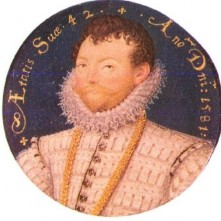
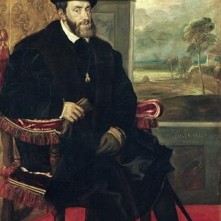



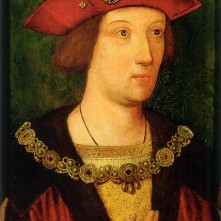
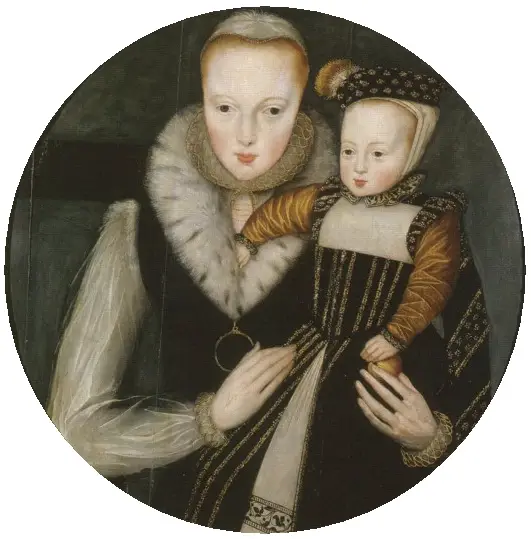
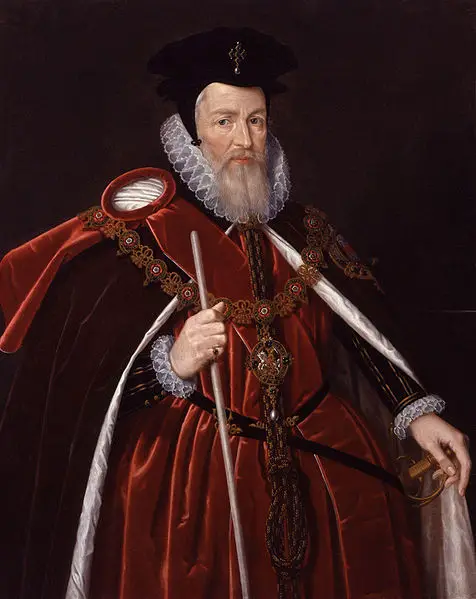
Leave a Reply